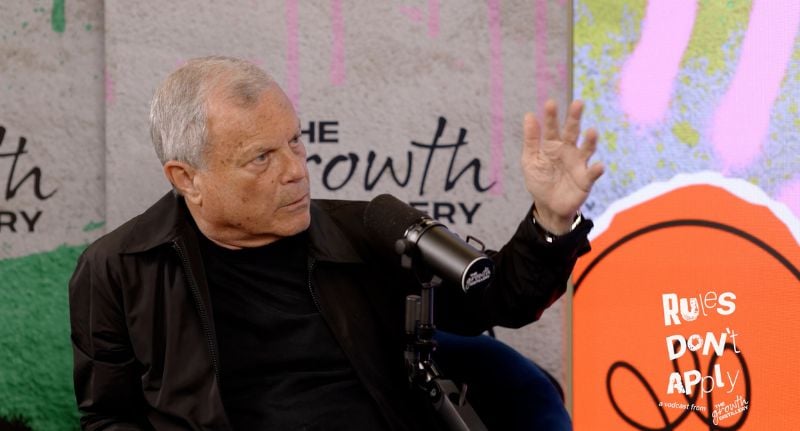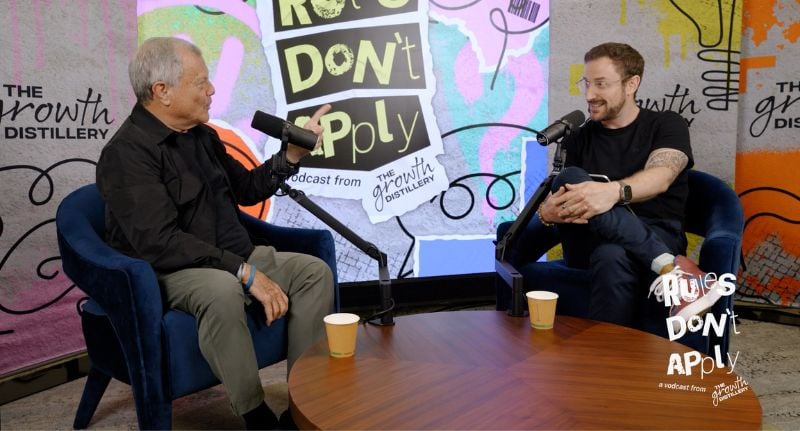Sir Martin Sorrell has a message for Australian marketers still grappling with AI: you’re looking at the wrong revolution.
Speaking on The Growth Distillery’s Rules Don’t Apply podcast at SXSW Sydney with Dan Krigstein, the advertising legend and S4 Capital founder warned that quantum computing represents a threat the industry has barely begun to comprehend, and it’s coming faster than expected.
“Scary is the right word… [It’s AI] on steroids,” Sorrell said, fresh from touring Google’s quantum lab in Santa Barbara following the company’s Zeitgeist conference.
“When you see that and hear about what the potential is, it dwarfs what we are seeing with AI.”
The warning carries weight coming from Sorrell, who’s had a front-row seat to industry disruption for decades.
He said that where companies spend their advertising budgets acts as an early warning system for technological change, tracking the rise of Google, Meta, Amazon, and now AI through client spending patterns.
“If you looked at the media portfolios we built at WPP and we’re building at S4 with Monks, you get a view of what’s happening in the world, both geographically and technologically,” he explained.

Sir Martin Sorrell
Hoarding information
But Sorrell’s most pointed criticism was reserved for leadership structures he believes are fundamentally incompatible with the AI era, the ones that act as silos and hoard information.
“People operate in silos, particularly at the top of organisations. They like to control things by controlling information. And now you can’t do that anymore,” he said. “AI democratises knowledge. Knowledge is power. Knowledge gives you the ability to control a silo or a vertical.”
He held up Nvidia’s CEO Jensen Huang as the countermodel, arguing that his ability to manage 51 direct reports is because knowledge has been “disseminated” throughout the organisation.
After 50 years in the industry, Sorrell remains astonished by the resistance to collaboration.
“It continues to amaze me how uncooperative and insular people can be, when to solve a problem and to win, is much easier if you engage people. We’re not good at listening. We’re always on transmit, and I think that’s a huge issue too.”
The industry veteran also offered a fascinating case study in competing organisational models, contrasting LVMH’s 76 “individual silos, separate brands” with the holding companies’ shift toward unitary brands.
He noted Omnicom’s CEO John Wren is “subtly merging” creative agencies through the Omnicom Advertising Group, while pointedly observing that WPP’s recent decision to place Grey under Ogilvy likely signals the loss of the Procter & Gamble business.
He said this is because Ogilvy already has the Unilever business, and agencies can’t manage competing clients.

Dan Krigstein
For Australian marketers, Sorrell’s assessment suggests an uncomfortable audit: if your senior leadership is hoarding information while competitors democratise it through AI tools, your structure will soon be outdated.
And if quantum computing arrives with the disruptive force he predicts, the window to restructure is narrowing fast.
When asked what he looks for in next-generation leaders, Sorrell’s answer was clear: “People who can sublimate their egos, who listen, share, and encourage people to work together.”
In other words, the opposite of the industry he’s spent five decades observing.

